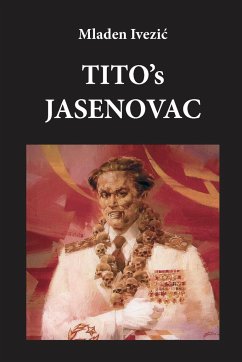Croatian historian Mladen Ivezi¿ (Zagreb, 1957) with his book Jasenovac-Numbers [Jasenovac - Brojke] defeated the communist (anti-fascist, as they are called in today's Croatia) falsehood that 700,000 and even 2,000,000 people were killed in the Collection and Work Camp Jasenovac between 1941 and 1945 during the Independent State of Croatia. Ivezi¿ demonstrated convincingly that there could not have been more than 3,000 dead. In his second book, Tito's art of hatred [Titova umjetnost mrznje], he has documented how Tito and his anti-fascists incited and executed the real and proven genocide against the Croats in 1945 and later years. The book in front of you, Tito's Jasenovac [Titov Jasenovac], establishes the existence of Tito's liquidation camp for masses of Croatian and German prisoners from 1945 to 1948, and deals with the exploitation of the genocidal pernicious damage of the Jasenovac myth in Tito's Yugoslavia. The fabricated numbers of victims in this myth were always used against the Croats as the main means in any argument and indisputably dominate the most dangerous of Tito's slogans: the victims which we suffered in the people's liberation war and the socialist revolution. In the full knowledge of the heads of the Communist Party that it was all lies, the myth opened the door to the single party, police, military, secret police, and all other kinds of frightening terrorism. Ivezi¿ points to the continuity of that myth up to the present day. Ivezi¿'s follows a perfect methodology with great diligence, studies many archives and funds, records written proofs, and very rarely passes on other people's opinions, but quotes anti-Croatian literature, pointing out to its illogicality, mendacity, internal, and mutual contradiction without decontextualization, wrong interpretation, omissions of the important facts. Ivezic's painstaking work on the span of the Jasenovac myth is illustrated well by a statistic regarding the number of victims in the Collection and Work Camp Jasenovac from Tito's federal Statistical Office, which was immediately proclaimed a frightful secret in 1966, but which the great Croat-eater, Tito's General Jefto ¿äi¿ publicised in 1986: Lets mention also that the Statistical office ''established'' that in the four years of the Ustasha in Jasenovac only 262 died, and in Stara Gradi¿ka 141 prisoners (...) that in all the camps in Yugoslavia there are a total of (only) 2,620 dead prisoners.
Hinweis: Dieser Artikel kann nur an eine deutsche Lieferadresse ausgeliefert werden.
Hinweis: Dieser Artikel kann nur an eine deutsche Lieferadresse ausgeliefert werden.








